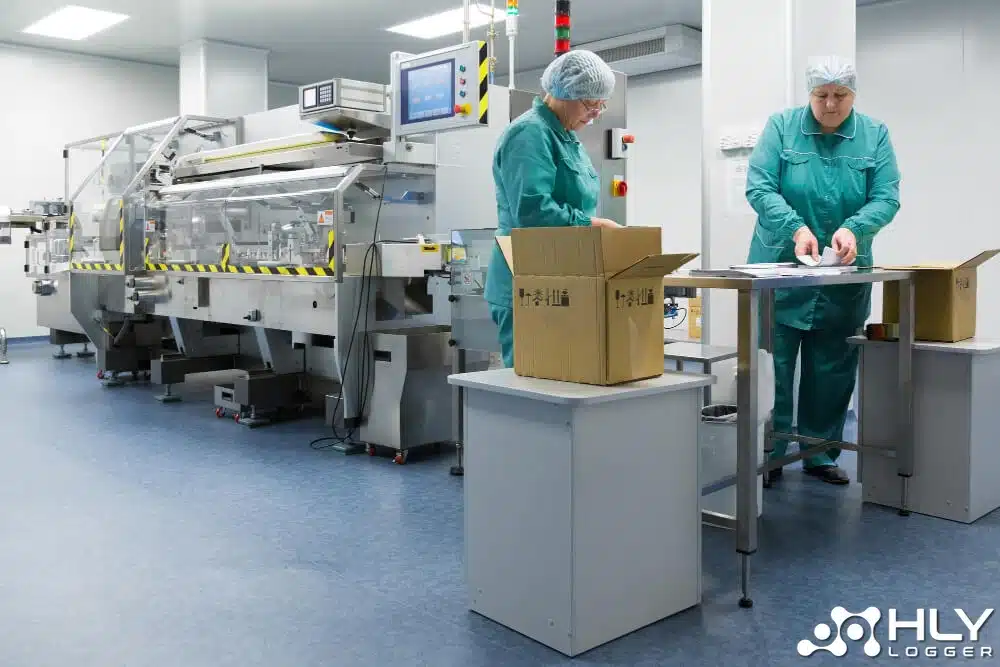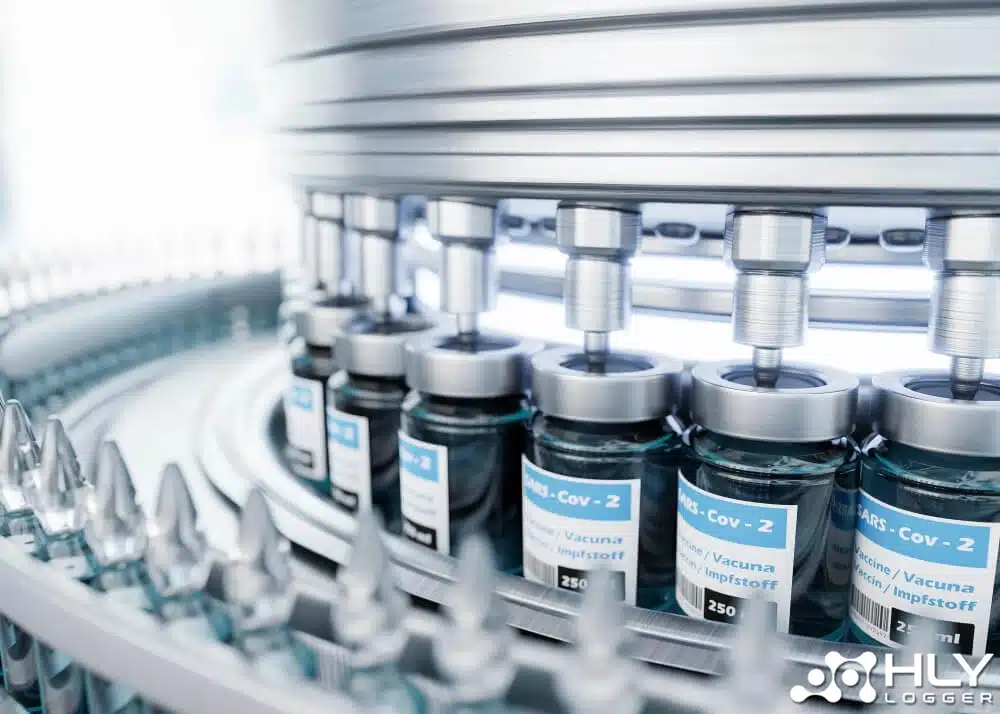Cold chain logistics for pharmaceuticals will greatly assist you in maintaining product quality during storage and transportation. This pharmaceutical cold chain management process is complex, as it requires controlling the temperature according to the environmental conditions in which you store medicines and other pharmacological products.
These temperature control and recording systems utilize technological innovations to maintain the integrity and quality of products, ensuring the safety of consumers who use them. Most medicines and pharmacological products are sensitive to temperature, and it’s crucial to manage this carefully.
For instance, many vaccines can remain effective for one or two years only if stored at the correct temperature. However, insulin vials can lose their effectiveness if the temperature is too low. Similarly, other pharmaceutical products, such as antibiotics, are less effective when exposed to high temperatures for extended periods. Laboratories also store blood, tissue samples, and chemical solutions, each requiring specific temperature conditions for preservation.
Therefore, it’s essential to adapt cold chain logistics for pharmaceuticals to help you monitor temperatures periodically, maintain complete documentation, and quickly address any issues that arise.
Contents
Cold Chain Logistics for Pharmaceuticals: For the Sake of Saving Lives
The cold chain logistics industry for pharmaceuticals is complex, vast, and significantly different from other logistics markets. Most cargo in this industry is directly related to saving lives. The demand for cold chain logistics increases yearly, driven by the growing use of temperature-sensitive biosimilars and biopharmaceuticals.
Additionally, the rising middle class with higher incomes is increasingly turning to the pharmaceutical market for better health and fitness, greatly impacting the cold chain logistics industry for pharmaceuticals. People expect special attention to be given to the safe storage and transportation of these highly sensitive products.
Temperature and humidity control are crucial to ensuring that medicinal products and other pharmaceuticals remain protected until they reach consumers. Those who are ill, in the recovery phase, or simply striving to stay healthy in challenging environments rely on the correct pharmaceutical products for their health.
Those working in the cold chain logistics industry for pharmaceuticals must always follow proper handling procedures, rely on specialized transportation equipment, and comply with regulations to ensure the industry’s continued growth. The United States and Europe have led the way in advancing this industry, dominating global revenues in recent years. However, Asia is catching up at an unexpected pace.
International trade in medicines and pharmaceutical materials will be smoother with robust cold chain logistics for pharmaceuticals.
Prepare Cold Chain Logistics for Pharmaceuticals as Best as Possible
Transporting sensitive medicines and pharmaceutical products requires structured and reliable cold chain logistics. These products need temperature controllers and recorders, such as disposable, reusable, or 3G and 4G real-time temperature data loggers, during storage and shipping.
Pharmaceutical companies must carefully plan their shipping strategies, considering risk predictions throughout the process. Accurate forecasting ensures that products reach consumers on time and in good condition.
Storage Process
Understanding the requirements for storing medicines and pharmaceutical products is critical. You need to know how sensitive the product is to humidity, air, light, and heat, and the best standards for storing these products. A cool, dry place is ideal for storing pharmaceuticals.
Ensure your warehouse provider meets the regulatory standards set by the Food and Drug Administration (FDA) and other relevant authorities.
The Technology Behind Cold Chain Logistics
Cold chain logistics for pharmaceuticals is closely tied to technology, which continues to evolve daily. You will need data loggers that automatically record temperature, humidity, vibration, and shock during storage and shipping. Additionally, all documentation should be available in digital form.
You should also use insulated containers, trailers, or refrigerated containers that are safe and effective. Reliable personnel are essential for product loading, transportation, and shipping and must be proficient in using the technology.
Packaging Guarantee
Cold chain logistics also relies heavily on secure and controlled packaging methods. Refrigerated containers are essential for transporting temperature-sensitive goods.


